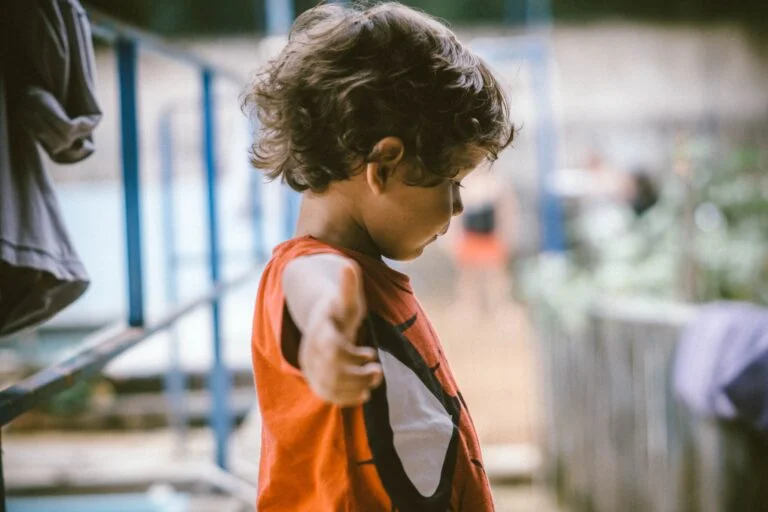Updated 10/5/24
In today’s fast-paced world, children face numerous stressors that can affect their mental health. Academic pressures, extracurricular activities, and the digital age can all contribute to increased stress and anxiety among young minds. Fortunately, there’s a simple and effective tool that can help kids navigate these challenges while promoting their mental well-being: yoga.
Yoga, a practice that combines physical postures, breathing exercises, and mindfulness, has gained popularity as a holistic approach to enhancing children’s mental health. Research suggests that introducing yoga to children can have a profound impact on their emotional and psychological well-being. Therefore, we’ll explore some of the researched benefits of yoga for kids’ mental health.
Stress Reduction

Stress is not exclusive to adults; children experience it too. Academic pressures, social interactions, and other life demands can lead to heightened stress levels. Yoga teaches kids valuable relaxation techniques, such as deep breathing and meditation, that can help them manage stress effectively. A study published in the Journal of Clinical Psychology found that yoga reduced anxiety levels in children significantly.
Reference: Galantino, M. L., Galbavy, R., & Quinn, L. (2008). Therapeutic effects of yoga for children: A systematic review of the literature. Pediatric Physical Therapy, 20(1), 66-80.
Improved Emotional Regulation
Additionally, Emotional intelligence, the ability to recognize, understand, and manage emotions, is a critical skill for kids. Yoga encourages self-awareness and emotional regulation. Therefore, by practicing mindfulness and meditation, children can gain better control over their emotions. Also, research in the Journal of Child and Family Studies has shown that yoga interventions improve emotional regulation in children.
Reference: Mendelson, T., Greenberg, M. T., Dariotis, J. K., Gould, L. F., Rhoades, B. L., & Leaf, P. J. (2010). Feasibility and preliminary outcomes of a school-based mindfulness intervention for urban youth. Journal of Abnormal Child Psychology, 38(7), 985-994.
Enhanced Concentration
Evidently, In today’s digital age, children are constantly bombarded with stimuli. Undoubtedly, Yoga can help improve focus and attention span. By practicing mindfulness, kids learn to be present in the moment, which can boost their concentration. A study in the Journal of Attention Disorders found that children who participated in yoga sessions demonstrated improved attention and reduced hyperactivity.
Reference: Harrison, L. J., Manocha, R., & Rubia, K. (2004). Sahaja yoga meditation as a mental silence-oriented approach for attention deficit hyperactivity disorder: A randomized controlled trial. Journal of Attention Disorders, 8(4), 103-111.
Increased Self-Esteem
Yoga promotes a positive self-image and self-acceptance. As children become more confident in their physical abilities through yoga, thus, they often experience a boost in self-esteem. Research in the International Journal of Yoga highlights the positive impact of yoga on self-esteem and body image in adolescents.
Reference: Nidhi, R., Padmalatha, V., Nagarathna, R., & Amritanshu, R. (2013). Effects of a holistic yoga program on endocrine parameters in adolescents with polycystic ovarian syndrome: A randomized controlled trial. International Journal of Yoga, 6(2), 143-149.

Social and Emotional Learning
Lastly, Yoga is often practiced in a group setting, fostering social skills, teamwork, and empathy. Children learn to work together, communicate effectively, and develop a sense of community. The Journal of Positive Behavior Interventions highlights the social and emotional learning benefits of yoga in school settings.
Reference: Butzer, B., Day, D., Potts, A., Ryan, C., Coulombe, S., & Davies, B. (2015). Effects of a classroom-based yoga intervention on cortisol and behavior in second-grade students: A pilot study. Journal of Positive Behavior Interventions, 17(3), 153-166.
Yoga is more than just a physical exercise; it’s a holistic practice that can significantly benefit children’s mental health. From stress reduction to improved emotional regulation and increased self-esteem, unquestionably, the researched benefits of yoga for kids’ mental health are impressive. Furthermore, if you’re a parent or educator looking to support the well-being of the young ones in your life, consider introducing them to the wonderful world of yoga.
Conclusion
Overall, remember that yoga should be introduced to children in a safe and age-appropriate manner. Join our next Therapeutic Kids Yoga Teacher Training with expert instructor Chirstine McArdle and give your child and those in the neighborhood the gift of mental and emotional well-being through yoga—a practice that can last a lifetime.
Join Christine McArdle, Author and E-RYT 500, for a Free Webinar:
Empower and Inspire: Free Lecture on Teaching Kids Yoga Using the Four Directions
Discover how to blend play with profound lessons, turning each class into an adventure of courage, strength, wisdom, and humility.
WANT TO KNOW EVEN MORE ABOUT KIDS YOGA?
Join Christine McArdle
for Therapeutic Kids Yoga Teacher Training online October 1-December 16, 2024.
And help children learn healthy tools for life
Learn how to teach children’s yoga classes in public schools, private institutions, local community centers and online!